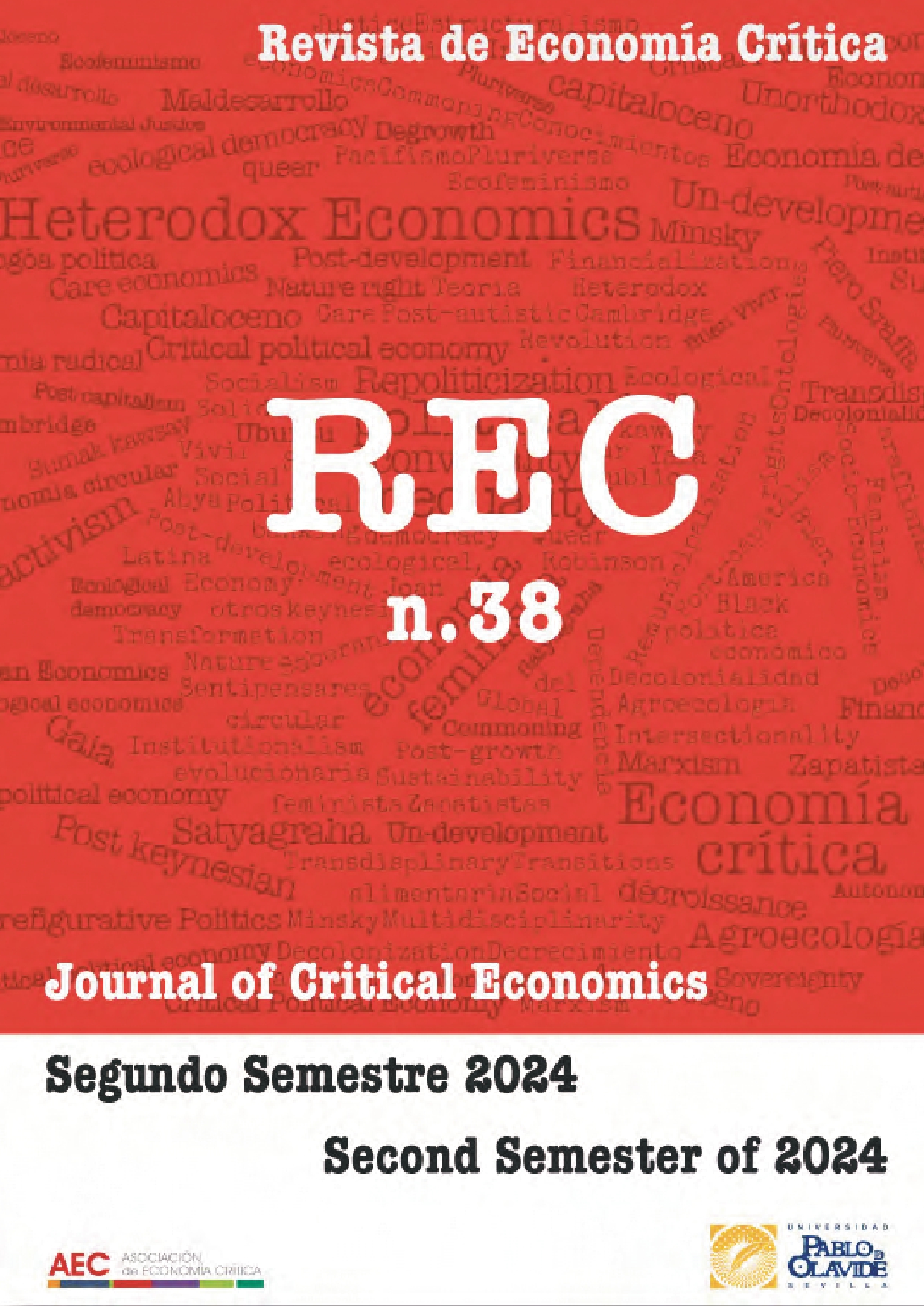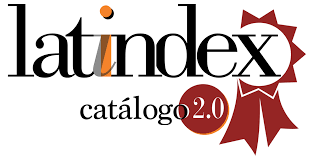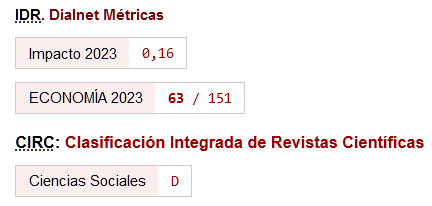Is the standard economic approach macho?
On how economic protagonism has shifted from the feminine to the masculine and globalised the slave condition of humanity
DOI:
https://doi.org/10.46661/rec.11374Keywords:
Economic system, Absolute metaphor of production, Father-Labor, Mother-Earth, Management vs adquisitionAbstract
Standard economics, as a purportedly scientific discipline, aspires to be neutral and universal. By presupposing that its goal of increasing “production” and “consumption” is good for everyone, it tries to place itself above any consideration of sex, gender, race, belief or the unique condition of individuals. But the ideology underlying such a belief is far from universal, since it is a somewhat singular creation of the human mind whose origin, biases and consequences should be analyzed and relativized. Indeed, humanity managed its administration for millennia without such an approach that ended up shifting the protagonism in the field of economic management from the feminine to the masculine, globalizing the slave condition of humanity and leading to the current crisis of civilization. This text analyzes how this shift came about, considering that identifying the causes of our problems is the first step towards alleviating and curing them. Thus, it ends by reflecting on the possibility of redirecting the current crisis of civilization towards healthier ecological and social futures.
Downloads
References
Botero, Giovanni, 1606. A Treatise, Concerning the Causes of the Magnificence and Greatness of Cities. London: Richard Ockould and Henry Tomes.
Bregman, Rutger., 2021, Dignos de ser humanos. Una nueva perspectiva histórica de la humanidad, Barcelona, Ed. Anagrama.
Cantillon, Richard, Essai sur la nature du commerce en general, publicado a título póstumo en 1755 (Hay reedición preparada por el INED, París, 1955).
Carthy, John Dennis y Ebling, Francis John, (comps.), 1977, Historia natural de la agresión, Madrid, Siglo XXI.
Descola, Philippe., 2005, Par-delà nature et la culture, Paris,
Ehrenberg, Margaret, 1989, Women in Prehistory, Norman and London, University of Oklahoma Press
Fiori, Stefano, 2019, "Nature and labor: theoretical approaches and metaphors of wealth before Adam Smith", The European Journal of Economic Thougth. https://doi.org/10.1080/09672567.2019.1682024
Fox Keller, Evelyn, 2010, The Mirage of a Space between Nature and Nurture, Durham-London, Duke University Press. https://doi.org/10.2307/j.ctv1134ff0
Fromm, Erich., 1975, Anatomía de la destructividad humana, Madrid, Siglo XXI.
Garrido, Vicente, 2024, El psicópata integrado en la familia, en la empresa o en la política, Barcelona, Ed. Ariel.
Gómez-Baggethun, Erik. y Naredo, José Manuel, 2020, "El mito del trabajo: origen, evolución y perspectivas", PAPELES de relaciones ecosociales y cambio global, Nº 150 2020 (pp. 9-22) [http://elrincondenaredo.org/wp-content/uploads/2020/07/Mito-del-trabajo-Gomez-Naredo.pdf]
Gordon, Richard L., & Tilton, John E. (2008) "Mineral economics: Overview of a discipline", Resources Policy, 33 (1), 4-11. https://doi.org/10.1016/j.resourpol.2008.01.003
Graeber, David y Wengrow, David, 2022, El amanecer de todo. Una nueva historia de la humanidad, Barcelona, Ariel.
Hare, Robert D., 2003, Sin conciencia. El inquietante mundo de los psicópatas que nos rodean, Barcelona, Paidós.
Jenofonte, s/f, Económico, en Recuerdos de Sócrates, Económico, Banquete, Apología de Sócrates, Biblioteca Clásica, Ed Gredos.
Kersaudy, Georges, 2001, Langues sans frontières. A la découverte des langues de l'Europe, Paris, Paris, Autremente.
Kirkpatrick., 2006, After Eden, Duke University Press Books
Lakoff, George y Johnson, Mark, 2001, Metáforas de la vida cotidiana, Madrid, Eds. Cátedra.
McCormick, Ted, 2009, William Petty. And the Ambitions of Political Arithmetic, Oxford, Oxford University Press.
Mumford, Lewis., 2011, El mito de la máquina, Logroño, Pepitas de Calabaza.
Naredo, José Manuel y Valero, Antonio, 1999, Desarrollo económico y deterioro ecológico, Madrid, Col. Economía y Naturaleza, Fundación Argentaria&Visor Distrib. [http://elrincondenaredo.org/wp-content/uploads/2023/10/desarrollo-economico-y-deterioro-ecologico-final.pdf].
Naredo, José Manuel, 2019, Taxonomía del lucro, Madrid, Siglo XXI.
Naredo, José Manuel, 1987, 4ª ed. actualizada, 2015a, La economía en evolución. Historia y perspectivas de las categorías básicas del pensamiento económico, Madrid, Siglo XXI.
Naredo, José Manuel, 2015b, Raíces económicas del deterioro ecológico y social. Más allá de los dogmas, Madrid, Siglo XXI.
Petty, William (1662), Treatise on taxes and contributions (later editions: 1667, 1679, 1685, etc.) Chap. 10 On penalties: P. 68 (de la edición original: London, Printed for N. Brooke, at the Angel in Cornhill, 1662).
Piñuel, Iñaki, 2021, Mi jefe es un psicópata. Cómo el poder transforma a las personas, Madrid, La esfera de los Libros.
Ryan, Christopher., 2019, Civilizados hasta la muerte. El precio del progreso. Madrid, Capitan Swing Libros.
Sahlins, Marshall., 2011, La ilusión occidental de la naturaleza humana, México, FCE
Schirrmacher, Karl, 2014, Ego. Las trampas del juego capitalista, Barcelona, Planeta.
Unceta, Koldo, 2015, Más allá del crecimiento. Debates sobre el desarrollo y el posdesarrollo, Buenos Aires, Mar Dulce.
Wuiderquist, Karl y Mccall, Grant S., 2023, Prehistoria de la propiedad privada Implicaciones para la teoría política contemporánea, Barcelona, Bauplan
Downloads
Published
How to Cite
Issue
Section
License
Copyright (c) 2024 José Manuel Naredo

This work is licensed under a Creative Commons Attribution 4.0 International License.
This licence allows third parties to share (copy and redistribute the material in any medium or format) and adapt (remix, transform and create from the material for any purpose, including commercial purposes), provided that authorship and first publication in this journal (The Journal, DOI of the work) is acknowledged, a link to the licence is provided, and it is stated whether changes have been made to the work.







